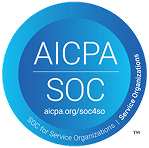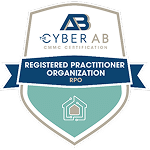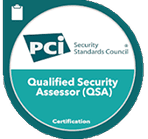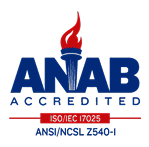For enterprise organizations, cybersecurity compliance has mostly been treated as a necessary evil, just another operational cost that provides air cover for risk reduction and keeps the compliance hounds at bay. But that thinking is outdated and, frankly, it’s costing companies real business opportunities.
However, many of the top competitive organizations are flipping the script to leverage compliance frameworks, whether it’s SOC 2, HITRUST, or FedRAMP, to differentiate in the market, accelerate sales, and expand into high-value verticals. At 360 Advanced, we see this shift every day: compliance isn’t just about passing an audit. It’s about sending a clear message to your customers, partners, and prospects that you take security and the protection of their data seriously.
Compliance as a Growth Lever
Frameworks like SOC 2 and certifications like ISO 27001 are now table stakes for any larger organization. But beyond just getting to the table with clients, these credentials help shorten sales cycles, reduce friction in procurement, and increase win rates, especially in highly regulated industries like healthcare, finance, and government. For instance, achieving FedRAMP ATO doesn’t just check a box; it opens the door to millions of dollars in federal contracts. It tells agencies your cybersecurity program is trustworthy.
A Trust Signal that Retains Customers
High-quality compliance reporting also strengthens customer retention. When clients know you’ve invested in a rigorous audit process, they’re more likely to stick around. It builds confidence in your organization’s ability to protect their data, which translates to a true value proposition. Many of our clients have told us their compliance programs were instrumental in retaining top-tier customers when contracts came up for renewal.
Risk Management that Goes Beyond Defense
Yes, compliance helps you avoid fines and regulatory pitfalls. But when done right, it’s also a forward-looking tool. The best programs are built to scale with your business and anticipate future mandates. That kind of agility matters when you’re growing fast or entering new markets. In an era of rising third-party risk and constant scrutiny, proactive compliance makes your organization more resilient and better positioned to lead.
We’ve worked with hundreds of growth-stage and enterprise clients who now see compliance as a brand asset instead of an operational burden. These organizations understand that compliance is an extension of their customer experience, their security posture, and their operational excellence.
If you’re still thinking of compliance as an annual audit or a budget line item, it’s time to take a fresh look. Strategic compliance pays dividends far beyond risk reduction.
We explore this concept in greater depth in our upcoming buyer’s guide, Compliance That Pays: How the Right Audit Firm Protects and Propels Your Business. Stay tuned for August 19—the guide is packed with insights to help technical and security leaders understand how to hire the right auditor for their future needs.








